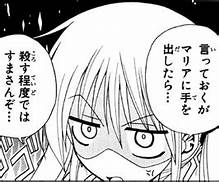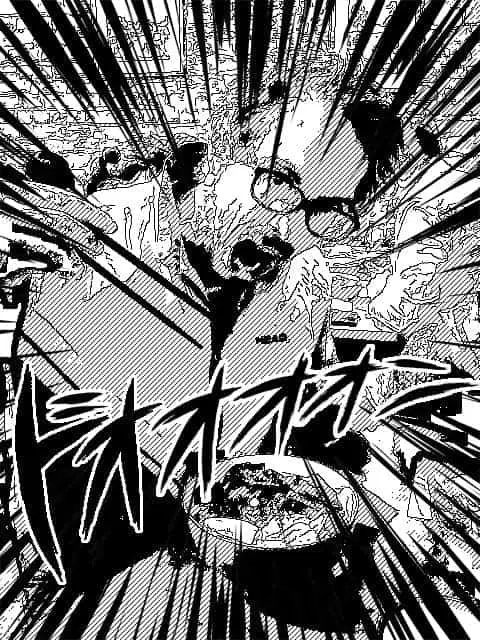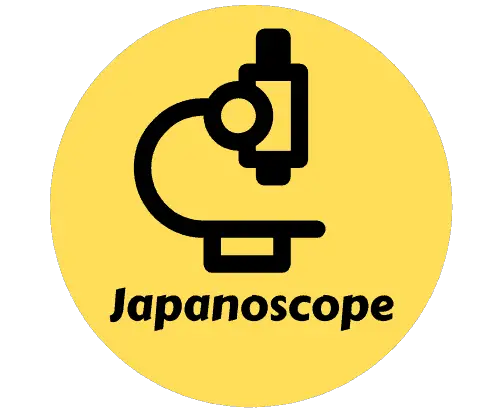戸川純 好き好き大好き
Togawa Jun Suki Suki Daisuki
Who is Jun Togawa?
Jun Togawa was once asked in an interview whether she was an “Idol” or an “artist”. She replied, “would it be bad if I said I was both?”.
She is one of those people that you can truly say straddles the boundary between pop and art,in a similar way to, say, a Bjork, or a Lady Gaga or even her country woman Kyary Pamyu Pamyu. In her ability to constantly change form and shape shift into various pop and sub cultural forms, there’s also a bit of Madonna or David Bowie about her. Vocally, she often uses a tight warbling vibrato that sounds to my ear similar to Johnny Rotten. Certainly, there is a punk sensibility about a lot of what she does. Like most great artists, she is an exquisite mish-mash of various seemingly disparate but somehow destined to meet elements.
Suki Suki Daisuki Japanese
好き好き大好き
常識をはるかに超えてつのる想い
突然変異的に勃発したバラ色の恋
もはや暴力的とも言える程の純愛
既に昭和史に刻む勢いのジュ・テーム
Kiss me 殴るよに唇に血が滲む程
Hold me あばらが音を立てて折れる程
好き好き大好き 好き好き大好き
好き好き大好き
愛してるって言わなきゃ殺す
日常を打破して具体化するエロス
本能で重ねる情事 無限地獄
アンチニヒリズムの直観認識は
潜在的幼児性暴力癖を誘発
Kiss me 殴るよに唇に血が滲む程
Hold me あばらが音を立てて折れる程
好き好き大好き 好き好き大好き
好き好き大好き
愛してるって言わなきゃ殺す
Kiss me 殴るよに唇に血が滲む程
Hold me あばらが音を立てて折れる程
好き好き大好き 好き好き大好き……
Suki Suki Daisuki English Translation
Love You, Love You, Really Love You
Beyond all common sense, this feeling just keeps getting worse
A sudden and strange mutation, a rose coloured love escalation
A love so pure and violent
I wonder if I can survive it
A je t’aime that could cut right through
The showa epoch too
Kiss me, like you’re hitting me
Till the blood comes running from my lips
Hold me, till my ribcage
Makes the sound of bone as it breaks
Cause I love you love you really love you
You better tell me that you love me or I tell you that I’ll kill you
Pummelling the everyday
An eros getting more concrete
An instinctual affair
Over and over in a hell endless
A direct premonition
Of anti-nihilism
Awakens a latent devious fixation
Kiss me, like you’re hitting me
Till the blood comes running from my lips
Hold me, till my ribcage
Makes the sound of bone as it breaks
Cause I love you love you really love you
You better tell me that you love me or I tell you that I’ll kill you
Kiss me, like you’re hitting me
Till the blood comes running from my lips
Hold me, till my ribcage
Makes the sound of bone as it breaks
Cause I love you love you really love you
You better tell me that you love me or I tell you that I’ll kill you
Jun Togawa Background
Jun Togawa As A Purveyor of Toilet Technologies
From the early 80s, she managed to work within and without the system as an actress, a singer, creator and destroyer of aesthetic worlds. In Japan, strangely, her early career was often associated with her role in toilet commercials. She appeared in ads for the company Toto, who had just created a questionably revolutionary toilet innovation called the “Washlet”, an electronic bum cleaner that was a forerunner to the high tech toiletry that Japan has come to, also strangely, become well known for. Her television talk show appearances of the time inevitably started with hosts referencing the tagline from the commercials 「オシリだって洗ってほしい」, which translates as “Your butt wants some cleaning-love too”. Such are the ignomonies an artist attempting to make their way in the world must endure. The thrust of the advertisements was the fairly convincing argument that “you wouldn’t just wipe your hands clean if they were covered in the bog, so why don’t you wash your arsehole you dirty slobs”.
Jun Togawa as Singer
In appearances singing on Japanese television during this time, she often seems to be making herself up to look like many of the cute girl-idols of the time, but with a glint in her eye. Flying just south of all out parody and just north of purist sincerity, you get the sense that no one quite realised that, on some level, she must have been taking the piss.
Musically, she got her start singing at the ultra hip, Nylon 100% cafe in Shibuya, Tokyo. She impressed the cognoscenti patrons of the coffee shop such as young musician Koji Ueno by singing a 1940’s imperial Japanese ballad called Soshu Yakyoku. A song written for the film Shina no Yoru “China Nights”, which you can see here, and originally sung by iconic pan-asia-atlantic star Yoshiko Yamaguchi, Soshu Yakyoku isn’t what you would expect to hear a young up and coming singer cutting their teeth on.
Jun Togawa & Guernica
Togawa started a group called Guernica with Ueno, where they dressed like a couple of clean-cut war-era Japanese entertainers. They played covers and original songs based on the music of the time, but all of it was given a disembodied, and electronic, twist.
The feeling of futuristic nostalgia that pervades Guernica’s music would go on to be one characteristic of much of Togawa’s work to the present day.
Jun Togawa’s Most Well Known Song – Suki Suki Daisuki
The song Sukisuki Daisuki is the title track from the 2nd album released under Togawa’s own name. The album is number five if you include her work with ゲルニカ and ヤプーズ. Sukisuki Daisuki has become perhaps her most iconic song internationally.
Suki Suki Daisuki Meme
Suki Suki Daisuki inspired a meme of the same name in the late Twenty-Teens where various various international manga and anime artists created a myriad of more or less cute-cum-grotesque images to go with the song’s iconic pre-chorus and chorus.

Suki Suki Daisuki & The Concept of “Yandere”
The song is a precursor to what came to be known as やんでれ Yandere, predominantly in the anime world, in the new millennium. Yandere is a portmanteau of the words 病んでいる, meaning sick or suffering, and でれでれ, meaning flirting, fawning or being lovestruck. On the surface, the word sounds linguistically pretty close to the English word “Love Sick”, but it has a different nuance to it. It suggests a sort of stalkerish sensibility in a lover. It hints at something dark, sinister, and sadistic. Characters of this type, especially female characters, perhaps reflecting the male sensibility of many of the people creating the comics, are prevalent in the anime world.
Though the term ヤンデレ hadn’t been coined when Jun Togawa released “Suki suki daisuki” the song offers a good representation of the Yandere concept. Indeed, the song has played a role in the creation of the idea in Japanese popular culture. It is most clearly crystallized in the iconic end line of the chorus. “You better tell me that you love me or I tell you that I’ll kill you.” Stephen King and Annie Wilkes couldn’t have said it better in “Misery” (though Annie probably would have been a lot cuter if the story had been set in, say, suburban Saitama).

Suki Suki Daisuki Lyric Notes
The lead up to the chorus is visceral in its imagery:
Kiss me 殴るよに唇に血が滲む程
Hold me あばらが音を立てて折れる程
“Kiss me, like you’re hitting me
Till the blood comes running from my lips
Hold me, till my ribcage
Makes the sound of bone as it breaks”
At the same time as being raw and physical, it’s also comes across as intellectually cerebral, with line like:
本能で重ねる情事 無限地獄
アンチニヒリズムの直観認識は
An instinctual affair
Over and over an hell endless
A direct premonition
Of anti-nihilism
“Anti-nihilism” isn’t a word that finds its way into a lot of pop songs.
Suki Suki Daisuki’s Strangest Line
It was probably the following line that gave me the most trouble to translate:
潜在的幼児性暴力癖を誘発
In my translation of the song I’ve gone with “Awakens a latent devious fixation”. But this is a bit of a sanitised, generalised version of Togawa’s original Japanese.
The original has two interpretations that you could take, depending on where you place the “性” that comes between the words 幼児 and暴力癖.
The less confronting interpretation you get by attaching the 性 to 幼児 gives you the word “infantile” making a sentence meaning something like:
“Invites a latent infantile violent propensity”
If you attach the 性 to 暴力, you get the word 性暴力, meaning “sexual violence” or “sexual assault”. In this translation 幼児 and 性暴力 would needed to be translated as “infant sexual violence”, or paedophilia, which you would need to translate as:
“Awakens a latent paedophilic urge.”
Ouch. I’m not sure that would fly in the Western pop charts, then or now.
But there is no shortage of Japanese people confused about this sentence also. See this thread (in Japanese) on Yahoo Answers (or Yahoo 知恵袋 in Japan) where someone has has posted a question asking what the line means. The answerer refers to a quote from Jun Togawa’s own book that (and which you can read an outstanding translated excerpt about the song here, also see juntogawaforever translation of the song here), thankfully, confirms that the line is closer to “Invites a latent infantile violent propensity” translation.
『それと言葉でいう幼児性ね。最近は全然暴力ふるいませんけど、幼児的な暴力癖があるんじゃないかという気がするので、意識の上では謙虚にしなきゃなと思いますよ。』
“The word is “”Infantile””. I haven’t exhibited any violence at all of late, but I feel like I must have some kind of infantile propensity towards violence within me, so I think I should keep a sense of modesty at the front of my mind.”
So, that is a relief.
Not that Jun Togawa seems to have many concerns about broaching taboo subjects in her lyrics. The title track from her debut, and previous to Suki Suki Daisuki, album was Tamahime-sama, which was a song about menstruation. In the intro video that accompanies the song Suki Suki Daisuki, Togawa holds a cat and tells us that she is moving from the theme of “menstruation” on the last album to the theme of “Eros” for this one.
Now that’s a transition of themes that proves that she is indeed an “artist”, even if sonically she was aiming at something akin to an “idol”.
Other notable Versions of Suki Suki Daisuki
In 2013 the Japanese Idol girl group BiS did an unlikely collaboration with legendary noise band 非常階段 Hijokaidan to form the BiSKaidan and cover Jun Togawa’s Suki Suki Daisuki. The result sounds like this:
This inspired Jun herself to team up with Hijokaidan to form 戸川階段 Togawa Kaidan and record a version that seemed to dispense with cute veneer of the song and do a version of the song that sounds like some kind of bedraggled Yakuza hag singing the song to an unfaithful lover in a dark before committing grizzly murder.
Vampilla has also lent their slew of guitars to give the song a slow doom rock vibe as evidenced by this clip of them playing the song live in 2018:
Other Jun Togawa Connections & Stuff
Togawa has also worked with other artists we have looked at on Japanoscope including Haruomi Hosono who has produced music for Guernica.
She has also worked with groups such as Halmens:
Jun Togawa is also written a lot including publishing several books of essays and works about her own life:
Jun Togawa Related Records
Jun Togawa Related Books
世界の「好き好き大好き」:戸川純の歌の英訳と背景
戸川純はかつて インタビューで「あなたはアイドルそれともアーティストですか」と聞かれたことがあります。そして彼女は「両方と言ったら悪いかしら?」と答えました。
彼女は本当にそういう2つの世界にまたがることができるアーティストだと思います。
おそらく、 レディー・ガガとかビョークとか、戸川純さんと同じく日本人の きゃりーぱみゅぱみゅ、といった感じの人かもしれません。さらに彼女は全く異なるイメージになりきる能力 を持っているところはマドンナ、あるいは デヴィッド・ボウイと似ています。そして、彼女の歌い方にはひとフレーズごとにちょっとした音の震えるようなビブラートがあり、どこかジョニー・ロッテンを彷彿させます。また、彼女の振る舞いには、どこかパンク的な要素がある気がします。他の著名なアーティストと同様に彼女は様々な異質な要素を寄せ集めて、新しく絶妙で彼女独自のものを作り出します。
80年代戸川純とマスコミ
80年代初頭から芸能界の表舞台だけでなく、マスコミから離れた場所でも、彼女は女優として、歌手として、クリエイターとして 美的世界の創造者として、また時には破壊者として活動を続けてきました。
面白いことに、彼女が芸能活動を始めて間もないころ主にトイレのコマーシャルで世間一般に知られるようになりました。彼女は当時、TOTOの「顔」のような存在となっていました。TOTOは当時、革新的なトイレ「ウォッシュレット」を販売開始したところでした。これは、お尻を洗う小さなノズルが出てきて、水を吹き出すというものです。「ビデの自動化」といったようなものです。コマーシャルに出てくる彼女はとても印象的でした。そして、必ずと言ってもいいほど彼女が出演するテレビのトークショーの殆どの 司会者はそのCMの広告のキャッチコピーについて言及しました。
「オシリだって洗ってほしい。」
英語訳すとEven your bum wants to be washedという意味です。
駆け出しの若いアーティストたちにとって少し恥ずかしいものだったに違いありません。(しかし、この広告のフレーズは確かに説得力がありました。手にウンチが付いていたら自分の手で、紙を持ってきて拭いただけで終わることはないでしょう。 洗いますよね。 じゃあ、お尻も同じように洗えばいいのでは、と。)
しかし、当時の彼女が歌手として出演しているテレビ番組では、 アイドルのような格好で出演していました。 ところがそれは彼女がわざとそれを演じていたようにも見えます。パロディとして演じているのと、本気でやっているのと、二つが交わるところから少しずれているところで活動していました。
おそらく当時の世間一般の人々には、彼女のこのような感覚が上手く掴めなかったのでは、と思われます。 彼女とどう付き合えばいいか、どこに分類すればいいかよく分からなかったかもしれません。
ミュージシャンとしては、彼女は独創的な東京のカフェ「ナイロン100 %」にてデビューしました。「蘇州夜曲」という1940年代の日本の帝国的な歌謡曲を演奏しているところをミュージシャンの上野耕路さんに見つけられたのです。
それは「シナの夜」という映画の曲でした。英題は「China Nights」という映画。1940年の戦時の中国が舞台となっています。この曲は、普通なら若い新鋭ミュージシャンが歌うような曲ではありません。
それで上野さんの目に留まったのです。そして、二人がゲルニカというバンドを始め引き続き同じような音楽をやることになりました。
戦前の日本のポピュラー音楽のような音楽をやっていました。見た目もとても印象的で。当時の非常に真面目なミュージシャンに見えました。皮肉的で無表情だったからです。どことなく暗い感じがしました。
しかし、彼らはそれを未来的な意味でやっていたのです。電子音楽的な要素もあり、彼らの解釈で皮肉的に演奏していたのです。そのような美意識は、彼女のミュージシャンとしてのキャリアの中で一貫して多くの戸川さんの作品に見られます。 懐古的な未来主義とでもいうのでしょうか。
世界の好き好き大好き
「好き好き大好き」は彼女の名義で出したセカンドアルバムのタイトル曲です。「戸川純」として。もしゲルニカやヤプーズも含めるなら彼女の5枚目のアルバム、ということになります。彼女は、ヤプーズというバンドの一員としても活動していました。
これらのソロとバンドの間に一線を画しにくい、 ジュン・トガワとヤプーズ。時には、それが 戸川純とヤプーズ、そして時にはただのヤプーズ、そして時には 「純」、「戸川純」。いずれにしても、これは完全にソロ名義でのセカンドアルバムです。
好き好き大好きミーム
この曲は おそらく彼女の最も世界で著名な曲となっています。この曲がミームになった、というのも一理あります。発売されてから30年以上経っているのに。様々な人々は様々なアニメのアニメーションを のイメージをつけたりしています。ちびっこキャラのような、かわいいとグロテスクの間のようなキャラ。
いわゆる「ヤンデレ」ですね。
好き好き大好きと「ヤンデレ」
この曲は、いわゆるヤンデレの一例になると思います。これは アニメでよく見かける概念です。これは、「病気」や「苦しみ」を意味する「病んでいる」という言葉を組み合わせた造語です。そして「デレデレ」という言葉。「デレデレ」とは誰かを大げさに褒めたり、媚びたりする意味があります。あるいは、愛に打たれること。
それは文字通り直訳すれば「Lovesick」という言葉に近いものがあります。しかし、そのニュアンスはかなり違います。この言葉は暗い意味合いを持ち、ほとんどある種の、ストーカー的な意味合いが含まれています。少し暴力的であったり、サディスティックであったりちょっと病んだ感じで夢中になっているような、ちょっと病的なくらいに夢中になること、を指します。しかし「ヤンデレ」という言葉は、戸川純が活動していた。当時は存在していませんでした。
歌詞の中に出てくる描写には、誰かが誰かのことに夢中になって、人に暴力を振るうようになり、その人に暴力をふるってほしくなってしまう、というところがあります。
この作品は日本の現代文化、特にアニメにおける「ヤンデレ」の概念 に影響及ぼしているかもしれません。そして、そのコンセプトは最も明確に、象徴的なある一行に集約されています。サビの部分が「スキスキ大好き」で、可愛い感じになっていながら、最後の一行は、あの
「愛していると言わなきゃ殺す」
です。
愛していると言ってくれないと 君を殺すよっと。これがいわゆる、純粋に液晶化された「ヤンデレ」の典型例だと思います。おそらくスティーブン・キングの著書『ミザリー』の中でアニー・ウィルクスは、これ以上うまく言えなかったでしょう。アニー・ウィルクスがもし日本にいたとしたら、おそらくもっと可愛くなっていたと思いますが。
好き好き大好きの歌詞・英訳
多くのこの歌のイメージ、歌詞は、とても直感的で、生々しく、かなり暴力的です。例えばサビに入る前の部分で、
「キスミー殴るように 唇に血が滲む程」
というところがあり、英訳すると、
「Kiss me, like you’re hitting me
Till the blood comes running from my lips」
その後 「Hold me, till my ribcage
Makes the sound of bone as it breaks」と続きます。
しかし、この歌詞は 生々しく、直感的であると同時に知的で頭脳的な ところもあります。歌詞の一部に
「本能で重ねる情事 無限地獄
アンチニヒリズムの直観認識は」
というところがあり、英訳すると、
「an instinctual affair. Over and over in a hell endless. A direct premonition of anti-nihilism.」となります。
「アンチ・ニヒリズム」
というような言葉が出てくることはポップ・ソングの中には、 欧米でも日本でも、ほとんどないでしょう、と言えると思います。
しかし、僕の中でおそらく次の一行が実際に英訳するのに一番苦労しました。
「潜在的幼児性暴力癖を誘発」
これはかなり奇妙です。何か問題が起きるような、ある種の心配させるようなフレーズでもあります。
「Awakens a latent, devious fixation」と訳しました。しかし、これはかなり寛大な翻訳ではないかと思います。
一般的な、クリーンな感じに訳しているものです。このフレーズにはいくつかの解釈があります。「性」という言葉をどこに置くかによっても。「性」」をどこに付けるのか。たとえば 「幼児」に付けることができます。だから「幼児性」は”infantile”になります。 しかし 、これはあまり一般的な言葉ではありません。一方で、「性」を付けられるもう一つの言葉 に「暴力」があります。つまり、「性暴力」、 その場合の意味は sexual violenceやsexual assaultを意味します。だから、「幼児」に 「性」をくっつけると次 のような翻訳ができます。Invite’s a latent, infantile, violent propensity というような。 これでもかなり変な感じがしますが、「暴力」に「性」を付けるほど問題にはなりません。この場合「性暴力」になります。これだと、おそらく「awakens a latent paedophilic urge」と訳すことになります。 潜在的な小児性愛者を目覚めさせる、というようなつまり、幼児に対する性的暴力。
この場合 それ以外の呼び方はありません。
「paedophilia」になってしまいます。
多くの日本人もこのセリフに戸惑っているようです。ヤフー知恵袋で誰かが質問を投稿していました。
“この曲のこのセリフの意味は?”
これに対して、誰かが 戸川純さんの本からの引用を投稿していました。
『彼女は自分の言葉で「それと言葉でいう幼児性ね。最近は全然暴力ふるいませんけど、幼児的な暴力癖があるんじゃないかという気がするので、意識の上では謙虚にしなきゃなと思いますよ。」』
だから、いろいろな意味で安心しました。彼女によると、「性暴力」ではないということです。そのような問題ではありません。とはいえこの曲の全体的な文脈を見ると、明らかに、暴力とセクシュアリティの関連性について述べたもの、といえると思います。考えさせられますね。ジェーンズ・ アディクションの曲でもペリー・ファレルが「セックスは暴力的だ」と言っています。つまり、この関連性を考えていたのは彼女だけではない、ということです。しかし、直訳して「小児性愛者」と訳す必要はありません。
助かりました。しかしながら、戸川純さんにはタブーとされるテーマをよく歌で表現します。
たとえば彼女のデビューアルバム「玉姫様」には同タイトルの曲があります。このアルバムのコンセプトというか、「玉姫様」という曲は月経の謎に迫る、というようなものでだから、彼女は物議を醸すような話題に触れることを恐れません。
「好き好き大好き」のプロモーションビデオの最初の部分でも猫を抱きかかえて可愛い印象です。
しかし、『前作が女性の「生理」をテーマにしていて、
今回のテーマは、「エロス」です』と彼女自身が言っていました。 このようなことから、私は、彼女がただのアイドルでもアーティストでもなく、 彼女はその2つを兼ね備えている存在だと思います。
Want more Translations? Try a topic from this list:
Tags
Other Song Translations
Japanoscope is a registered affiliate with several online shops and may receive a commission when you click on some of the links within content.
Language Learning Program Reviews

Who is behind this site?
I’m Peter Joseph Head. I lived in Japan for four years as a student at Kyoto City University of the Arts and on working holiday. I have toured the country six times playing music and speak Japanese (JLPT N1).
ピータージョセフヘッドです。3年間京都市立芸大の大学院として、一年間ワーキングホリデーとして日本に住み、6回日本で音楽ツアーをし、日本語能力試験で1級を取得しました。要するに日本好きです。
Podcast: Play in new window | Download

